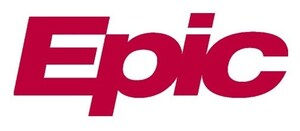Expert Group Meeting attendees focused on improving the patient experience, reducing costs, and boosting clinician happiness with AI, automation, and other advanced technologies.
VERONA, Wis., May 17, 2024 /PRNewswire/ -- More than 9,000 experts from leading healthcare and medical research organizations attended Epic's Expert Group Meetings (XGM) April 29-May 9. XGM is one of the world's largest health IT events, offering focus groups and presentations spanning the healthcare continuum including primary care, specialties, research, analytics, revenue cycle, and population health.
"XGM is special. It's one of the biggest events of the year for healthcare experts who take the latest advancements like generative AI, cut through the hype, and figure out how to use them to improve healthcare for patients and clinicians," said CT Lin, Chief Medical Information Officer at UCHealth (Colorado). "We work side by side with one another and with Epic to take on the biggest challenges and opportunities facing our industry."
Healthcare organizations are under tremendous pressure to do more with less. Visit volumes are increasing, it's difficult to hire and retain clinicians, and reimbursements have not kept pace with the cost to deliver care. At XGM, the Epic community works together to apply technology to solve these and other problems—and ultimately, to advance medicine.
Peer-to-peer presentations offer real-world results from how organizations have used Epic to improve the lives of their patients and staff. Attendees leave with concrete plans to begin achieving similar benefits quickly.
Here are just a few examples from nearly 900 XGM presentations:
- Returning to the joy of medicine with more dialogue and less documentation. Emory Healthcare noted that they use ambient AI to enable physicians to see more clinic patients, experience a better sense of wellbeing, and spend less time drafting clinical notes. After a patient's verbal consent, ambient AI captures the dialogue between patient and physician, eases the cognitive load associated with tracking patient conditions, gives time back to doctors to better listen to their patients in clinic, and minimizes administrative burden.
- Reduce denials with better provider-payer information-sharing. When they replaced phones and fax machines with real-time access to information from patients' electronic charts, Wellstar Health System saw a 71% decrease in medical necessity denials due to lack of information. This translates to $1.5 million in revenue, a better working experience for nurses, and a smoother care experience for patients.
- Virtual visits save time, are convenient for patients, and reduce carbon footprint. Henry Ford Health saved over 126,000 miles of patient travel—and 4,000 hours of travel time—with a virtual visit program for behavioral health integration.
- Reduced antibiotic infections means healthier patients and reduced cost. With risk scoring mechanisms and protocols, Sentara Healthcare saw a 45% decrease in antibiotic-resistant infections (MRSA) for hospital patients. This is projected to deliver $2 million in associated costs avoided.
XGM is held every spring at Epic's Intergalactic Headquarters in Verona, Wisconsin. It is a special event Epic holds with the goal of bringing providers, technology experts, and other industry leaders together to improve healthcare worldwide.
Epic is a global healthcare software company that helps people get well, helps people stay well, and helps future generations be healthier. Founded in a basement in 1979 with three half-time employees, Epic is now the leading EHR software developer in the United States. Epic supports healthcare organizations in 16 countries, with more than 2,700 hospitals using Epic and over 190 million patients using Epic's MyChart patient portal to manage their care online.
For more information contact: Coral Graszer; [email protected]. Visit www.epic.com/about.
SOURCE Epic

WANT YOUR COMPANY'S NEWS FEATURED ON PRNEWSWIRE.COM?
Newsrooms &
Influencers
Digital Media
Outlets
Journalists
Opted In






Share this article